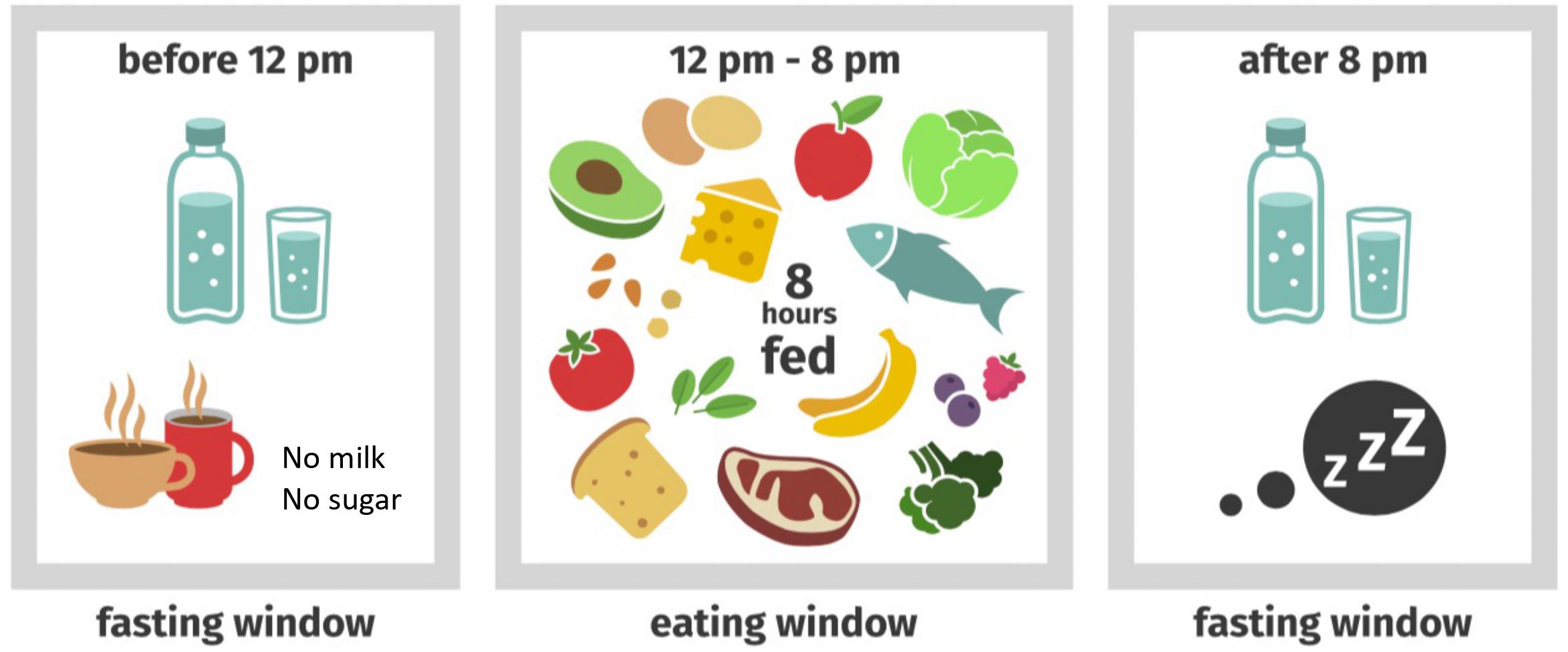Unlocking the Secrets of Intermittent Fasting
In the vast tapestry of human history, the practice of voluntary abstinence from food and drink, commonly known as intermittent fasting, has woven its threads across diverse cultures since ancient times. Ethnological texts and religious scriptures vividly portray the myriad forms of fasting, reflecting a rich tapestry of human traditions. The resurgence of interest in fasting is palpable, evident in the plethora of popular press publications and diet recommendations that inundate the modern world.
The Quest for Evidence: Navigating Fasting Regimens
The crux of this exploration lies in understanding the diverse intermittent fasting regimens and deciphering the evidence regarding their impact on human health. Three major themes emerge: alternate day fasting, modified fasting regimens, and time-restricted feeding.
Alternate Day Fasting
This fasting variant involves alternating days of complete abstinence from energy-containing foods with days of unrestricted eating. Studies in rodents suggested efficacy comparable to simple caloric restriction in improving metabolic parameters. Human intervention studies, albeit limited, revealed modest weight loss and positive impacts on glucoregulatory markers, showcasing potential benefits. However, concerns about feasibility and sustained public health interventions arise due to reported considerable hunger on fasting days.
Modified Fasting Regimens
In contrast, modified fasting regimens permit a restricted energy intake on designated "fasting" days, forming the foundation for popular diets like the 5:2 diet. Human trials indicated significant weight loss, albeit with mixed effects on metabolic markers. While some studies reported improvements in lipids and inflammatory markers, the superiority of modified fasting over standard energy restriction remains inconclusive.
Time-Restricted Feeding
Recent insights delve into the relationship between feeding intervals and circadian rhythms. Animal studies suggest positive outcomes, and limited human trials indicate reductions in weight, emphasizing the potential importance of aligning fasting with daily circadian rhythms.
Religious Fasting
The canvas expands to encompass religious fasting, where spiritual practices intertwine with physical benefits. Ramadan fasting, a cornerstone of Islam, showcases transitory weight loss with mixed evidence on metabolic markers. Similarly, other religious fasts, such as those practiced by the Church of Latter Day Saints and Seventh-day Adventists, reveal intriguing connections between faith, fasting, and health.
The Biological Ballet: Circadian Biology, Gut Microbiota, and Lifestyle Influences
Underlying the effects of intermittent fasting are hypotheses centered around circadian biology, the gut microbiota, and modifiable lifestyle behaviors. Circadian rhythms, orchestrated by the master clock in the hypothalamus, may play a pivotal role in optimizing metabolic function. The gut microbiota, influenced by fasting, can impact energy absorption, expenditure, and storage. Modifiable lifestyle behaviors, including energy intake, expenditure, and sleep patterns, further shape the intricate dance of intermittent fasting and its effects on health.
Crafting Your Fasting Plan
Incorporating intermittent fasting into your lifestyle requires a personalized approach. Understanding your body's response to different fasting regimens is key. Experimenting with alternate day fasting, modified fasting, or time-restricted feeding allows you to tailor a plan that aligns with your preferences and daily routines.
Listen to Your Body's Signals
As you delve into intermittent fasting, pay close attention to your body's signals. Hunger is a natural part of the fasting process, but severe discomfort or persistent feelings of weakness may indicate the need for adjustments. Flexibility in your fasting schedule ensures a sustainable and enjoyable experience.
Circadian Rhythms and Fasting
The relationship between circadian rhythms and intermittent fasting adds another layer to the narrative. Emerging research suggests that aligning your fasting period with your body's internal clock might enhance the benefits. Consider adjusting your fasting window to coincide with your natural circadian rhythm for potential optimization.
Timing Matters
Explore different feeding and fasting intervals to find what suits your circadian rhythm best. Some individuals thrive on morning fasting, while others find success with evening fasting. The key is to sync your fasting periods with the times when your body is naturally more receptive to these changes.
Exploring Fasting-Compatible Cuisines
Fasting doesn't have to be a bland or restrictive experience. Embrace the opportunity to explore diverse, nutrient-dense foods that complement your fasting goals. Opt for whole foods, lean proteins, and a variety of colorful vegetables during your eating windows to nourish your body and support overall well-being.
Hydration Heroics
Staying adequately hydrated is paramount during intermittent fasting. Water, herbal teas, and black coffee can be your allies in this journey. Not only do they help curb hunger, but they also contribute to your overall hydration status, supporting various bodily functions.
Conclusion:
As we navigate the complexities of intermittent fasting, it's essential to view this journey as a dynamic and evolving process. The symphony of benefits attributed to intermittent fasting invites us to consider not just the destination but the entirety of the voyage.
FAQs :
Can I exercise during fasting periods?
Yes, incorporating exercise during fasting periods can enhance the benefits of intermittent fasting. However, listen to your body and adjust the intensity and timing based on your comfort level.
What can I eat during the fasting window?
It's crucial to abstain from consuming calories during fasting periods. Stick to water, herbal teas, or black coffee. Save nutrient-rich meals for your eating windows.
How does intermittent fasting affect mental clarity?
Some individuals report improved mental clarity and focus during fasting periods. Experiment with different fasting schedules to see how they align with your cognitive performance.
Is intermittent fasting suitable for athletes?
Athletes can incorporate intermittent fasting, but it requires careful planning to ensure they meet their nutritional needs for optimal performance and recovery.
Can intermittent fasting be combined with other diets?
Yes, intermittent fasting can be combined with various diets like keto or paleo. However, it's essential to ensure that the overall nutritional balance meets your body's requirements.






Comments
Post a Comment